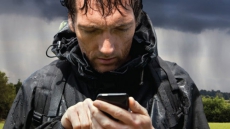Expecting mothers may take note that exposure to some common germ killers used in cosmetics can lead to reproductive problem and may even affect the size of your newborn, a study shows.
"We looked at the exposure of pregnant women and their foetuses to triclosan and triclocarban - two of the most commonly used germ killers in soaps and other everyday products," said Benny Pycke, a research scientist at Arizona State University (ASU) in the US.
"We found triclosan in all of the urine samples from the pregnant women that we screened. We also detected it in about half of the umbilical cord blood samples we took, which means it transfers to foetuses. Triclocarban was also found in many of the samples," Pycke claimed.
The problem with this, Pycke explained, is that there is a growing body of evidence showing that the compounds can lead to developmental and reproductive problems in animals and potentially in humans.
Also, some research suggests that the additives could contribute to antibiotic resistance, a growing public health problem.
The compounds are used in more than 2,000 everyday products marketed as antimicrobial, including toothpastes, soaps, detergents, carpets, paints, school supplies and toys, the researchers noted.
The study also yielded a link between women with higher levels of another ubiquitous antimicrobial, butyl paraben, which is commonly used in cosmetics and shorter newborn lengths, said Laura Geer from State University of New York.






